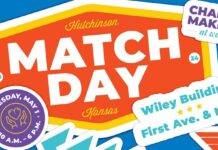Prairie Doc® Perspectives for week of September 13, 2020
When We Know Better
By Debra Johnston, M.D.
Early in the pandemic, I had occasion to page through photo albums my mother assembled during my childhood. Some of those happy images chilled my physician heart. There I was, two months old, sleeping peacefully on my stomach, in the middle of a sheepskin rug.
There I am, seven years later, seated with my siblings on lawn chairs in the bed of the pickup truck as my parents drove us home. We navigated that 15-mile trip multiple times a week for months.
There I am, age 12, grinning from my perch atop a wagon load of corn. On the way home from the co-op, I would ride standing on the wagon hitch while my siblings sat on the fenders.
Bear in mind, my parents seemed especially safety conscious for the time as evidenced by snapshots of us buckled into our primitive car seats. And, when sunscreen was introduced, I remember my classmates basking in baby-oil while I was slathering on the SPF4.
As the saying goes, when we know better, we can do better. That philosophy should apply to us all, throughout our lives.
During my years in medical school, we taught parents to lay their babies down for sleep on their backs or their sides. Now we know better…back sleeping on a firm mattress with a taut fitted sheet and no blankets or teddy bears, presents the lowest risk of SIDS. And, research continues.
Early in my career, we recommended children not be allowed to eat peanut products until at least age two to reduce allergy risk. Now we know better…early introduction to small amounts of peanut butter and other highly allergenic foods is the preferred strategy for most children. Still, research continues.
The history of medicine, and of science, is one of constant research and evolution. Some things we once thought we knew, did not hold up under further objective study. It is critically important that we challenge and examine our options and re-evaluate the way we have always done things. We must expect adjustments and be willing to change when healthier alternatives are revealed.
Obviously, I survived the dangerous situations of my childhood. However, too many children do not. We can never eliminate all risk, but we can, and must, continue to invest in the scientific process, using the best available data to determine the most effective solutions, even to old questions.
Debra Johnston, M.D. is part of The Prairie Doc® team of physicians and currently practices family medicine in Brookings, South Dakota. For free and easy access to the entire Prairie Doc® library, visit www.prairiedoc.org and follow Prairie Doc® on Facebook, featuring On Call with the Prairie Doc® a medical Q&A show streamed most Thursdays at 7 p.m. central.
-0-




